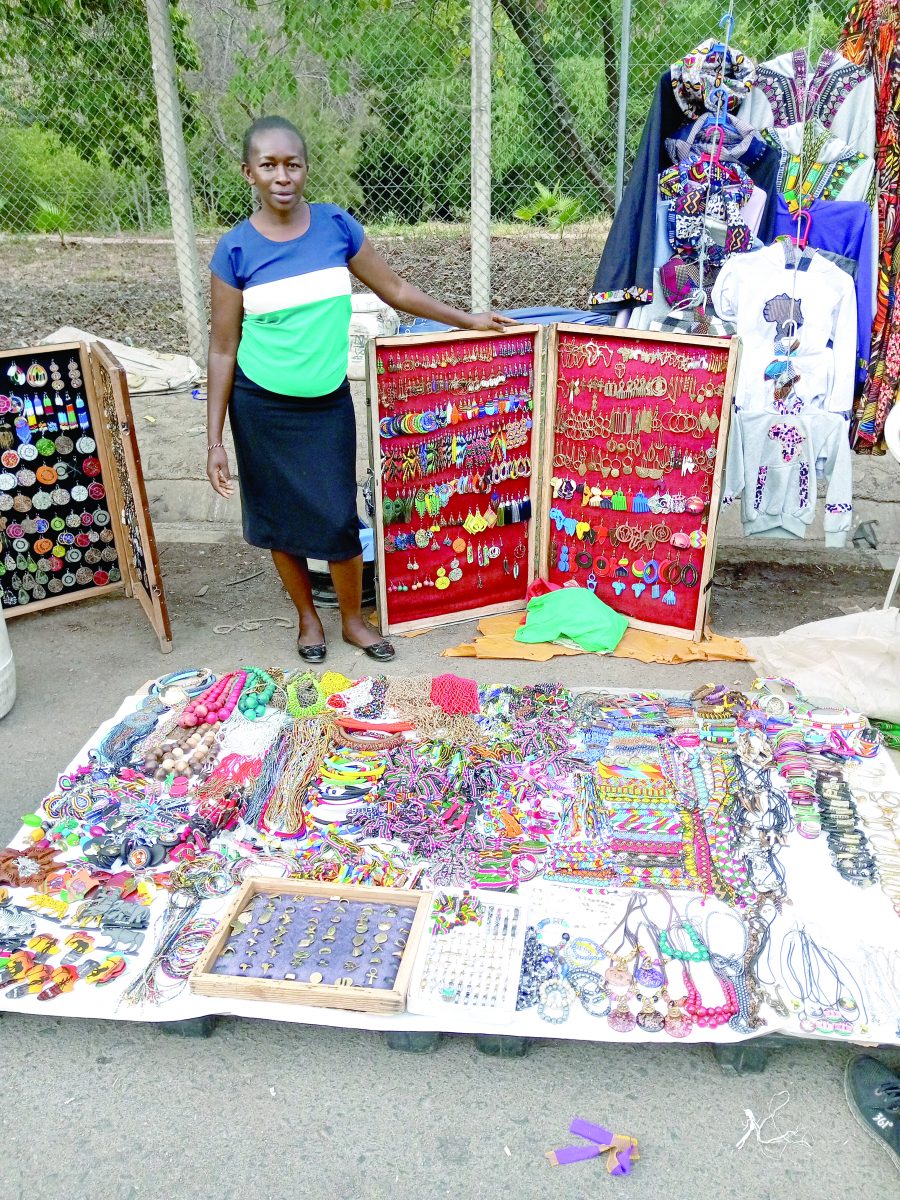Come rain or shine, Maasai market traders lose money

Every Tuesday, Pauline Ndaka makes her way to the Maasai market on Kijabe Street, where she sells beads.
For the last 10 months, traders at the robust market — the biggest of its kind in Nairobi — have not witnessed any rain, until last week.
“When the sun is too hot, it affects the quality of the beads,” says Ndaka.
The rain ought to have been a relief, but when it rains, customers stay away or traders are left with no choice but to close shop before time.
In other countries, traders have innovated shelters that shield them from changes in weather patterns, an innovation that is sorely missed by the beads and Kitenge traders of the Kijabe Street traders, who are feeling the impact of changes in weather patterns.
The direct impact of changing weather is evident in the physical damage of their beads during the prolonged hot seasons. Indirect impacts are felt in the flow-on effects of climate change or extreme events, such as a supply being disrupted when rains make roads impassible in places like Narok, where Ndaka and other traders source their beads. Either way, their incomes are either reduced or do not reach the peak of their potential.
Open air
When the beads are exposed to too much direct sunlight, they lose value over time. According to Ndaka, constant change in weather is a problem to her and her colleagues because during the rainy season, they end up closing their businesses.
The favourable season for them is when it is humid and the weather is mild. But this only lasts a few months each year, hence the need for open air markets to find innovations to shield their products from inclement weather.
Pottery is particularly vulnerable during rainy season.
“If the pots are rained on they tend to lose value and also in times when it is too hot, they break or lose shape, which really becomes a challenge,” she says.
Local buyers
The prolonged drought, for instance, has also affected the Maasai market traders because it has led to a high cost of living as commodity prices increase.
Ndaka says the cost of beads has doubled and this has left her with no choice but to increase the cost of her finished products, especially those made from fine beads.
“We end up increasing the selling prices, which is really discouraging our clients,” says Ndaka, who started her small business in 2019.
“I can say they sell, and there is no day I have made the artworks and ended up regretting,” she says, acknowledging that though challenges abound, the business still puts bread on the table for her and her family. “Business is really picking even from our own people who buy for at wholesale prices and who go to re-sell.”
The number of foreigners visiting the market has also been increasing, and they are not as price sensitive as local buyers.
There are different types of artworks that Ndaka and her colleagues make. According to her, the fine beads, which are most popular with buyers, are the most expensive.
“Those that are most pleasing to foreign customers are the artworks which are made by the Maasai community,” she says.
African print
Interestingly, she reveals, Kenyans prefer local beadwork to imported products, and as such, the traders rely more on local production than imports.
Items with Kenyan flag colours have found a niche in the market.
“Most people want to have Kenyan jewelry on their wrists,” says Ndaka, evidence that Kenyans value their culture. Beads with Rastafarian colours are also popular.
According to Ndaka, many women have taken up beadwork to build themselves financially. “It is work and makes us to stay busy,” she says.
While some make jewelry, some make African print clothes, others paint, while some make shoes and many other items, all of which they sell at the market.
For one to be allocated a space, one has to register with the traders’ group for a fee. This also caters for transportation of the wares to the market.
The Maasai market is unique because the traders move from place to place around the city on different days. On some days, they display their wares at the Hilton Hotel or at Supreme Court area, both in the city centre, which are easier for customers to access, especially on weekends. However, some of the traders have permanent stalls at Kariokor and others in Westlands.
“We offer beautiful and high quality products at low prices,” says Ndaka.












